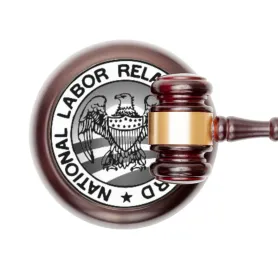On the heels of the Labor Day weekend, the National Labor Relations Board (NLRB) released a Notice of Proposed Rulemaking and request for comments (NPRM) that would once again change the joint employer legal standard. The proposed regulations roll back the employer-friendly rule the NLRB finalized during the Trump administration.
As discussed in previous posts, in 2018, the Trump NLRB announced and confirmed that it would address the Joint Employer standard through notice and comment rulemaking. This marked a departure from the NLRB’s typical practice of implementing legal standards through Board decisions. Several months later, the NLRB followed through on its promise, publishing a proposed rule. After the comment period, the NLRB issued the final rule in 2020, reversing the NLRB’s groundbreaking decision in Browning-Ferris Industries of California, Inc., d/b/a BFI Newby Island Recyclery, 362 NLRB 1599 (2015) (BFI), which held an employer could be considered a joint employer as long as it exercised “indirect control” over working conditions or had “reserved authority” to do so. Under the Board’s 2020 rule, employers were not deemed joint employers of a single work force unless they actually shared or codetermined employees’ essential terms and conditions of employment – in other words, they must each possess and exercise substantial direct and immediate control over one or more essential employment terms that is not limited and routine. Among the “essential terms and conditions of employment” were wages, benefits, hours of work, hiring, firing, discipline, supervision and direction. Indirect control—or merely the right to control a worker—was no longer sufficient to establish a joint employer relationship.
While the joint employer standard set forth in the 2020 rule has only been in place for a little over two years (and the Board has yet to apply it in any decision), the NLRB has nevertheless signaled its intention to implement sweeping changes to the current joint employer standard. Noting the 2020 rule “constrained the joint-employer standard,” and buttressed by a belief “that the 2020 final rule…repeats the errors that the Board corrected in BFI,” the Biden Board has now proposed to rescind the current standard and replace it with a new rule that incorporates the BFI standard and responds to the District of Columbia Circuit’s invitation for the Board to refine that standard in its 2018 decision on review of BFI (in Browning-Ferris Industries of California, Inc. v. NLRB, 911 F.3d 1195, 1222 (D.C. Cir. 2018)). Notably, the standard announced in the NPRM contains several critical distinctions from the current joint employer standard, including:
-
Exercising or merely reserving/possessing the right to directly or indirectly control workers’ essential terms and conditions of employment is sufficient to establish a joint employer relationship.
-
A broader scope of “essential terms and conditions” of employment, adding control over workplace health and safety, assignments, and “work rules and directions governing the manner, means or methods of work performance.” The NPRM notes the list of essential terms and conditions is not exhaustive.
Unquestionably, the proposed rule is far less employer-friendly than the Trump-era rule. When ultimately adopted, the new rules requiring only the right to control employees and broadening the list of essential terms and conditions of employment will present a major issue for temporary staffing companies, companies that contract out labor, and franchised businesses, among others.
Although the proposed rule is not final, once it is published in the Federal Register on Wednesday September 7, stakeholders have until November 7 to provide comments. The NLRB must consider comments before publishing a final rule.






 />i
/>i
